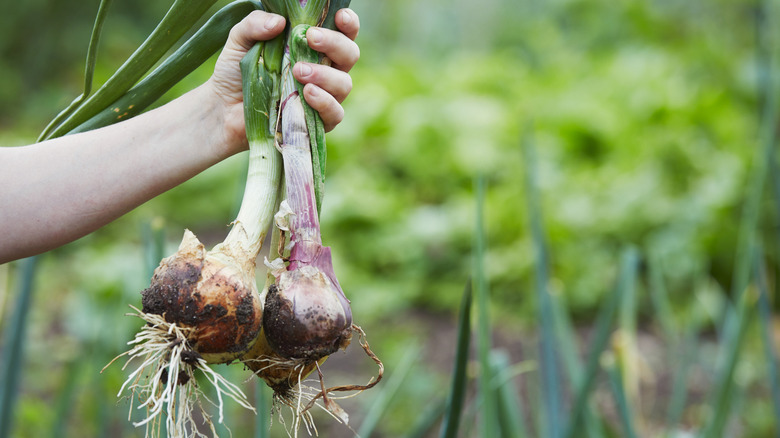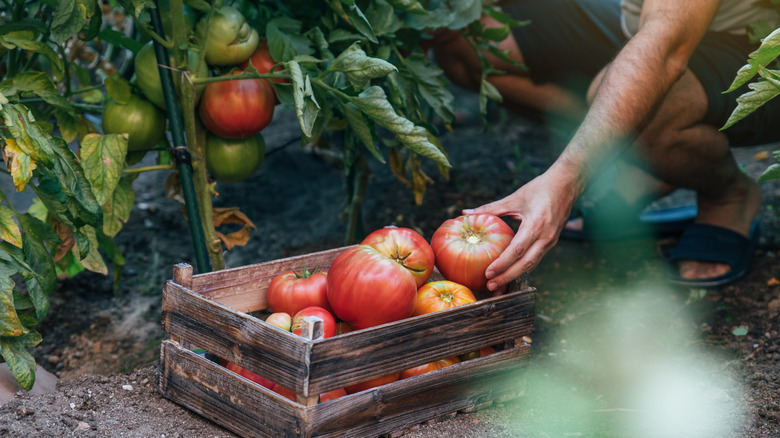The Hidden Benefits Of Planting Onions Beside Your Tomatoes In The Garden
The practice of companion planting has many benefits: It saves space, improves soil health, and controls pests. But, not all plants benefit each other. Beans and peas don't do well next to onions and the growth of both tomatoes and kohlrabi is stunted when they're grown together. Onions (Allium cepa) and tomatoes (Solanum lycopersicum) are mutually beneficial. Onion repels many insect pests with its strong aroma, and the tomato returns the favor when its aromatic defense system is triggered by an intruder's touch. In fact, the secret weapon found in the tomato's leaves can be turned into an aphid-repellent spray.
The natural insect repellents found in onions and tomatoes are frequently mutually beneficial, but the plants' different root systems and growing seasons benefit the tomatoes more than the onions. The unpleasant odor of onions is caused by sulfur, a compound that's toxic to insects if they ingest it. This may or may not contribute to onion's pesticidal qualities, because the onion or its leaves has to be cut before sulfur is released. Similarly, the odor of the tomato isn't apparent until the tomato leaves are touched, but there's little doubt that the two plants benefit each other beneath the soil. Anecdotally, onion plants may also keep rabbits away from tomato plants with their scent.
Benefits of growing tomatoes and onions together
Onions are one of the 15 companion plants recommended to grow next to tomatoes for several reasons. They have shallow roots while tomatoes can have either a taproot or fibrous roots. The shallow roots aerate the soil near the surface, allowing the soil to absorb and retain water. This is beneficial to both the onions and tomatoes. The two plants also have different growing seasons. Onions are planted as soon as the soil is workable in the spring. Tomatoes go into the garden after the danger of frost has passed. The presence of the onions as they're growing prevents the soil from compacting, making it easier for the tomato's roots to spread deeper into the soil.
Potato onions (Allium cepa var. aggregatum), may make tomato plants more resistant to verticillium wilt, a fungal disease, by causing the tomato's roots to create antifungal exudates. Since onions also can suffer from verticillium wilt, the benefits may be mutual. You can boost your odds of success with companion planting by choosing a disease-resistant tomato variety.

